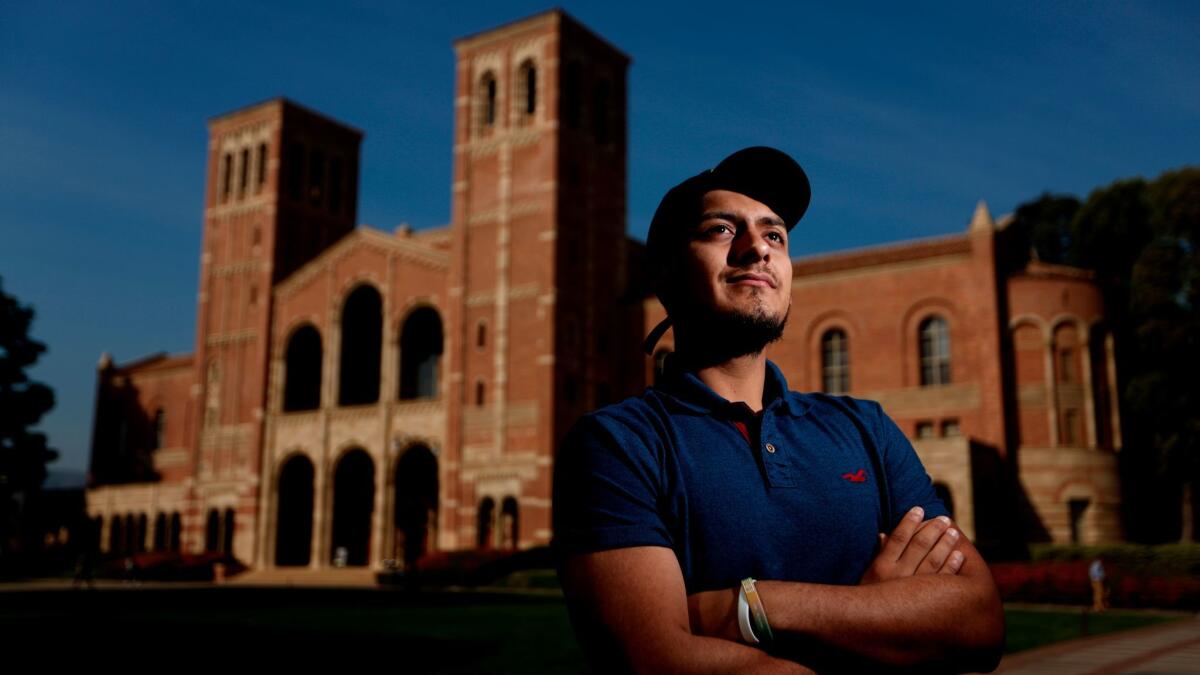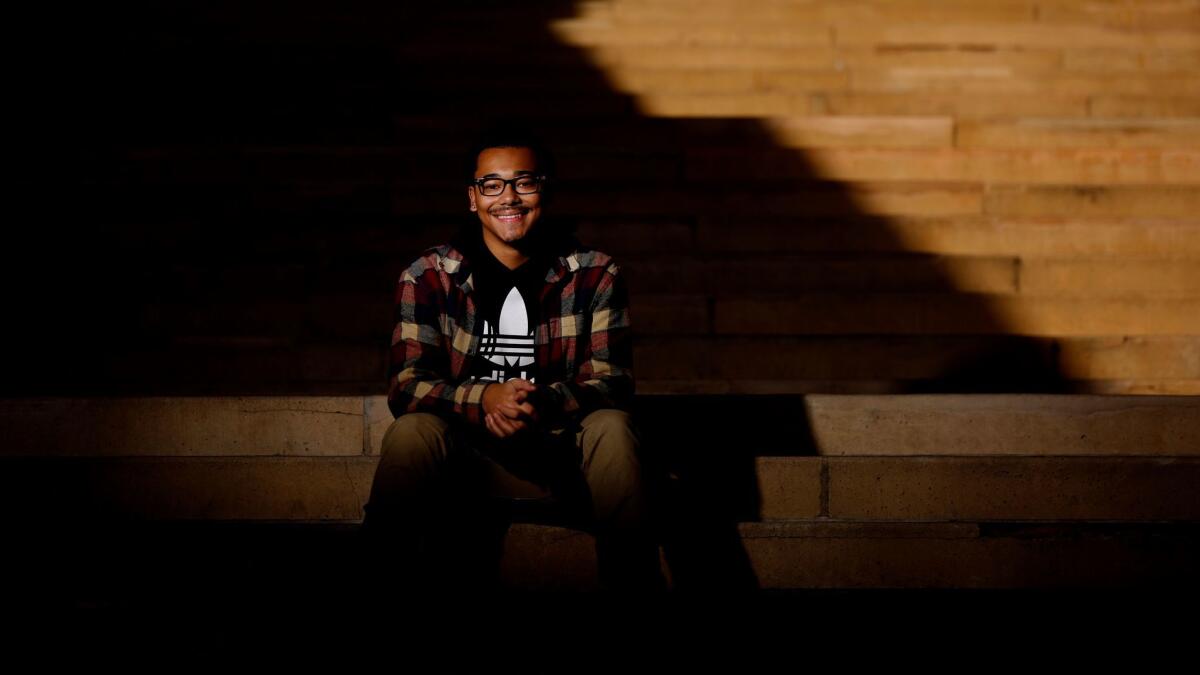Why it’s important to talk about successful black and Latino boys

While Chukwuagoziem Uzoegwu was growing up, his mother often would throw what he and his brothers called “educational tantrums.”
On those weekends or on random days in the long stretch of summer vacation, the Uzoegwu boys would be barred from TV “from sun up to sunset,” he said.
“Leisure time was spent reading. Leisure time was spent writing,” said Uzoegwu, now 17 and a senior at King Drew Medical Magnet High School of Medicine and Science.
Uzoegwu attributes his upbringing with his success as a student. He has a GPA above 4.0, is taking six Advanced Placement classes and wants to attend Stanford University.
He was one of 201 L.A. County students interviewed for a new UCLA report on the experiences of successful black and Latino teenage boys in Los Angeles.
The researchers asked faculty at six high schools to identify boys in grades 10 through 12 who either excelled academically, held leadership roles in extracurricular activities or showed resilience in their home lives. They interviewed those boys and asked them how they defined success, and what they felt had contributed to theirs.
Black and Latino students in California have lower test scores and higher rates of suspension than their white and Asian peers. Studies show that teachers treat black students more harshly than white ones as early as preschool, and some have lower academic expectations for black students.
Tyrone Howard, a UCLA education professor and director of the school’s Black Male Institute, previously had researched achievement gaps. He started taking a close look at successful black and Latino teens about three years ago, as news of police shooting and killing young black men began to garner national attention.
“So much of what I found is that African American males were … seen as being defiant, disruptive, difficult to deal with,” Howard said. “We see young black and brown men by and large as being threats. … I don’t think we humanize them enough.”
The new report highlights how high expectations at home, safe places such as community organizations and sports programs, and strong mentors at school motivate students who thrive.
We see young black and brown men by and large as being threats. … I don’t think we humanize them enough.
— Tyrone Howard, director of UCLA’s Black Male Institute
Howard hopes the findings will encourage teachers to rethink relationships with their students, and will help persuade communities to invest in programs that students say benefit them greatly.
“Hardworking” is the most common word the teens interviewed for the report used to identify themselves. For them, success was defined not just by grades and college but the ability to help their families and the people around them.
The usual narrative, researcher Bianca Haro said, is “‘I want to get up and out.’” The boys she interviewed, she said, “don’t want to do that. ...They want to go to college and then they want to come back and make their communities better.”
Haro was in charge of finding and interviewing 32 students at George Washington Preparatory High School in Westmont. She interviewed Martin Capuchino about two years ago, when he was a senior applying to colleges.
Capuchino, now 19, is in his second year at UCLA. He didn’t score well on the SATs but had above-average grades, played on the football team and was involved in student government.
Like many of the young men interviewed, Capuchino is the son of immigrants. His mother emigrated from Guatemala, his father from Mexico.
Capuchino attributes his success to two older brothers who made it to college before him, a teacher who encouraged him to be active, and his father’s insistence that education come first.
When he was in ninth grade, Capuchino’s father enrolled him with his brothers in Upward Bound, a program that offers tutoring and college preparation for underprivileged students.
He appreciates the notion of a report that focuses on successful students of color, but points out that people should also realize that he had more advantages than people around him.
“Success is a beautiful thing,” Capuchino said. “But you shouldn’t forget that not everyone’s born on the same playing field.”
That’s a feeling echoed by Miguel Claros Jr., who also participated in the report. Claros, whose parents are black and Salvadoran, graduated from Westchester Gifted and High Honors Magnet and now is a freshman at UCLA.

He tested as a gifted student when he was young. He said he felt teachers expected more from him than they did from some of his peers, especially in high school.
Outside the classroom, he also gained confidence by helping his mother, an L.A. Unified employee who taught students with disabilities.
Claros was one of many boys in the study who listed their mothers as role models.
When he was in fifth and sixth grade, Claros would visit his mother’s classroom and read to the children or teach them basic math. Later, when his mother started training teachers, she gave him rubrics and asked him to help her grade.
Many of the students interviewed for the study talked about success as an ongoing process rather than a fixed achievement.
Claros began feeling successful at a young age, when his mother trusted him with some of her responsibilities.
“In that space, she treated me as an individual,” Claros said. “I felt like an adult.”
Reach Sonali Kohli at [email protected] or on Twitter @Sonali_Kohli.
ALSO
This Muslim teen has her own way to protest the election — winning robotics competitions
Can a child who starts kindergarten with few reading or math skills catch up?
More to Read
Sign up for Essential California
The most important California stories and recommendations in your inbox every morning.
You may occasionally receive promotional content from the Los Angeles Times.











